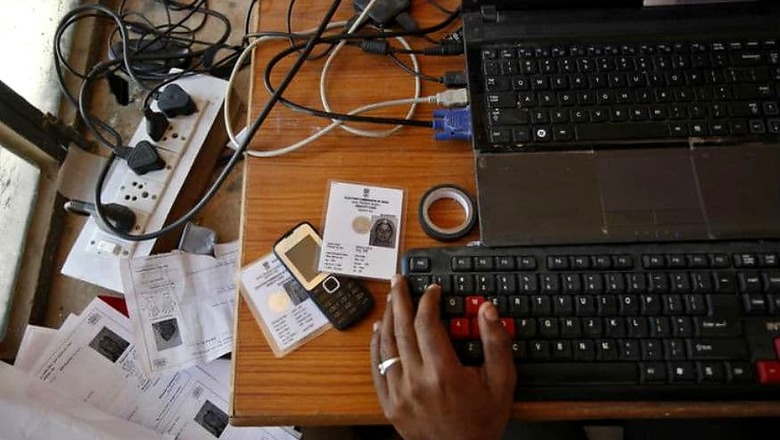
views
New Delhi: The Union Cabinet's move to set up an Aadhaar-linked National Academic Depository (NAD) comes on the heels of a Supreme Court hearing on Friday on a writ petition challenging the constitutionality of the new Aadhaar Act.
The Union Cabinet on Thursday approved setting up of NAD as part of its Digital India campaign under which academic awards and certificates are verified, authenticated, accessed and retrieved in a digital depository. The database is linked to Aadhaar, making it the latest such scheme after a recent circular made Aadhaar compulsory for claiming LPG subsidies.
There were petitions earlier in the court, arguing that these linkages are in violation of an interim order by the apex court dated October 15, 2015, that had limited Aadhaar's voluntary use to six schemes (PDS, NREGA, LPG, NEPS, and social assistance programs).
It had prohibited the government from making Aadhaar mandatory for receiving any benefits or services, and hence the government move amounts to contempt of the court, they argued.
Todays writ petition challenging the vires of the Aadhaar act has been moved by SG Vombatkere and Bezwada Wilson.
The case will come up before the bench presided by Justice Chelameswar on Friday.
Prasanna S, a Delhi-based lawyer who had moved the Supreme Court on behalf of social activist Aruna Roy for the earlier contempt petitions, told News18 that linking Aadhaar to NAD is a “gross violation of the Supreme Court order”.
"This move is nothing but contempt of court," he said, adding, "When a student decides to opt for a government or a private job, does he have a choice of not giving his consent? These are false choices. Now all the corporate entities will also join the NAD bandwagon, further compelling a student to be in the depository," Prasanna said.
Not everyone agrees with Prasanna though.
Biju Janata Dal (BJD) leader Bhartruhari Mahtab told News18 that the Narendra Modi government has taken various corrective measures to address the discrepancies that the petitioners have raised. "I don't see any impediment to the NAD being implemented successfully across the country," he said.
In fact, several educational institutions have already voluntarily moved to an Aadhaar-linked online database even before NAD comes into place. Jamia Millia Islamia and Punjabi University, Patiala, among others, recently announced issuance of online graduation and post-graduation certificates, which is also linked to the students' Aadhaar number.
Critics like Dr. Usha Ramanathan, an independent law researcher studying Aadhaar since 2009, maintain that Aadhaar needs to be "called off as a flawed project".
"Time has come for the apex court to be a bulwark against the over-ambitious state," Ramanathan had told News18 a few days before the NAD announcement.
Currently, there are two legal strictures governing the validity of the Aadhaar: one is the apex court order of October 15, 2015, limiting the card's voluntary use to six schemes (PDS, NREGA, LPG, NEPS, & social assistance programs) and prohibits the government from making it mandatory for receiving any benefits or services.
The other is the Aadhaar (Targeted Delivery of Financial and Other Subsidies, Benefits and Services) Act, 2016, which is under challenge today. Both these strictures have distinct operational status, but recent government directives of making Aadhaar mandatory, petitioners allege, raise the question of whether the interim order of the SC is shadowed by the Aadhaar Act or if the government is in effect defying the orders of the apex court.
A recent directive from the oil ministry making Aadhaar mandatory for claiming LPG subsidy had also fuelled the "contempt" debate. A source in the ministry, however, maintained that the regulation was in accordance with the Aadhaar Act, 2016. "Any person who has an Aadhaar has to produce it, and whoever does not have one will be assisted by the oil companies to enroll for the Aadhaar card," he said, requesting anonymity.















Comments
0 comment